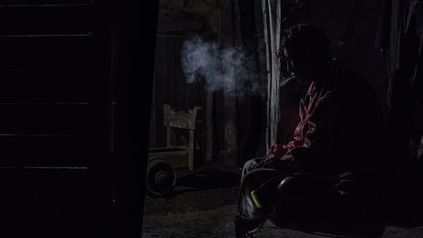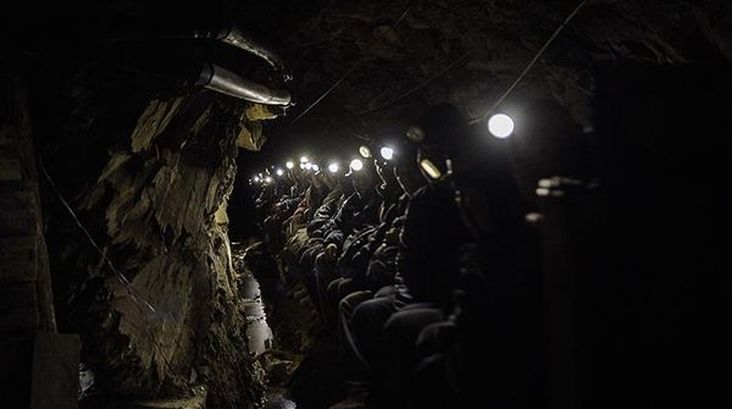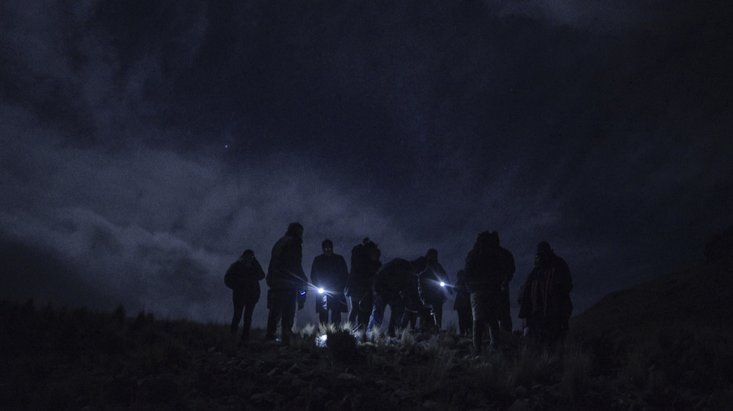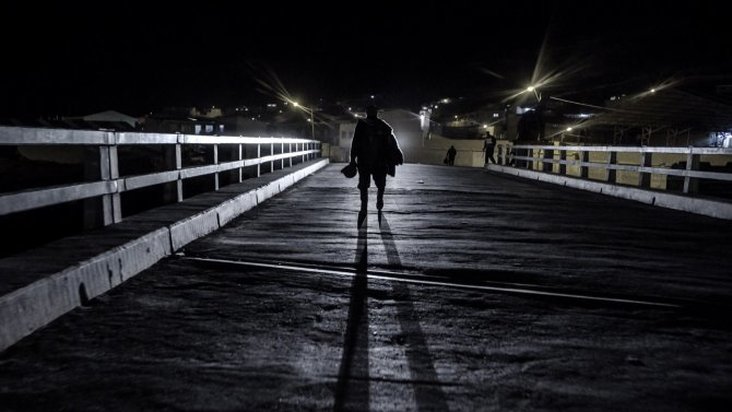 Sporting an aesthetic more akin to horror cinema than introspective drama, Kiro Russo's Dark Skull is a brooding story of grief and self destruction, detailing the struggles of a young man in Elder Mamani, who is forced to take up his father's coveted place in the tin mines in the Bolivian city of Huanuni after the tragic death of his father. Elder is a disgrace to the family, a young man who spends most of his time with the bottle, uninterested in supporting his family and his community which still holds onto the tin mines as their only source of community, camaraderie, and self-worth. Kiro Russo's Dark Skull is as much a story about family and sacrifice, as it is about the stark reality in which miners inhabit, a film which manages to balance both elements quite beautifully as this nightmarish experience unfolds right in front of our eyes. Kiro Russo's direction, use of ambiance, sound, and lighting truly make this film a harrowing experience, where darkness itself is a character, both figuratively and literally. Immersive and moody, Kiro Russo's detailed examination of the harsh conditions of the tin mines feels like a descent into hell, as the filmmaker beautifully uses interlaced editing of the machinery and the clings and clanks as they distort the rock-face to effectively transport the viewer into this troubling profession and the headspace of young Elder, a young man who has no desire to be subjected to these types of conditions. Kiro Russo's use of black space and darkness is truly something to behold, with much of the compositions throughout Dark Skull being filled with significant amounts of black space, a symbolic representation not only of this troubled young character of Elder, but also serving as a reminder of the cruel conditions of this profession. As the film progresses, Elder becomes more and more unpredictable, drawing scorn from other workers in the mine who view him as a distraction at the very least, and potentially even threatening the safety of the operation. No matter how much Elder's godfather attempts to help him into the role, he rejects this life. The ending of Dark Skull perfectly encapsulates the nature of the environment these characters' inhabit, offering up a slight role reversal of both Elder and his godfather, who is now the character who is drunk and needs some form of assistance. A film of such darkness offers only a glimmer of light, not exactly showing that Elder has grown up in this moment, but for the first time in the film, showing that he may have found some form of empathy and comraderie with his community and family. A stark, atmospheric piece of filmmaking that ventures into the heart of darkness, Kiro Russo's Dark Skull is impeccably well made film about grief, camaraderie, and empathy, a story which is both intimate in its drama but grandoise in its deconstruction of this small mining community in Huanuni, Bolivia.
0 Comments
Leave a Reply. |
AuthorLove of all things cinema brought me here. Archives
June 2023
|



 RSS Feed
RSS Feed
